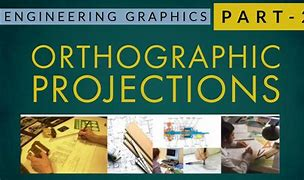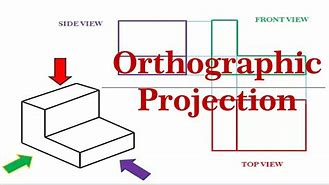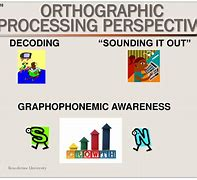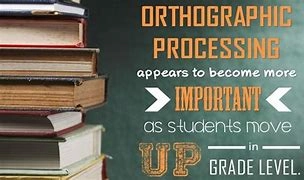The method by which our brain interprets and gets printed words is known as orthographic processing. It needs more than simply alphabet knowledge; it also wants the ability to recognize and recall entire words as well as their spelling patterns. For reading comprehension and smoothelly, this procedure is essential. This can be observed in literary works like Sandra Cisneros’ “Eleven”, where the simple, repetitive language mirrors the cognitive and linguistic patterns of a young mind still developing orthographic awareness.

Definition of Orthographic Processing
Orthographic processing is the process by which humans interpret written language, identifying words based not only on individual letters or sounds but also on their shapes, characters, and patterns. We use it as a kind of mental dictionary to swiftly recognize words.
Symptoms of Orthographic Processing
Reading and writing difficulties may result from underdeveloped orthographic processing. It can be difficult for people to spell words correctly, rapidly recognize terms, or recall how to spell words they’ve seen previously. This may slow down reading and increase the difficulty of writing.

Orthographic Processing Vs Phonological Processing
| Aspect | Orthographic Processing | Phonological Processing |
|---|---|---|
| Definition | Recognizing and manipulating letters, | Recognizing and manipulating sounds, |
| spelling patterns, and grammar rules. | understanding their relationship. | |
| Role in Reading | Recognizing words by sight, | Decoding words by sounding them out, |
| understanding spelling patterns. | developing phonemic awareness. | |
| Role in Writing | Spelling words correctly, using | Encoding words by translating sounds |
| correct grammar. | into letters, using correct spelling. | |
| Cognitive Processes | Visual recognition and manipulation. | Auditory recognition and manipulation. |
| Importance in Literacy | Crucial for fluent reading, accurate | Crucial for developing reading fluency, |
| spelling, and understanding written | phonemic awareness, and spelling. | |
| Examples | Recognizing “cat” by its visual | Sounding out “cat” as /k/-/a/-/t/ and |
| appearance. | blending sounds to form the word. |
Development of Orthographic Processing
Reading and writing help us enhance our orthographic processing skills. While we may initially rely on sounding out words, as we gain experience, we begin to recognize words by sight, which speeds up and increases the automaticity of reading.
Reading and writing practice, as well as exposure to written language, impact this development.

Results of Stimulating Orthographic Processing
| Result | Description |
|---|---|
| Improved Reading Fluency | Enhanced ability to recognize words quickly and accurately, leading to smoother and more efficient reading. |
| Enhanced Spelling Ability | Improved capacity to remember the correct spelling of words, resulting in fewer spelling errors in writing. |
| Expanded Vocabulary | Increased ability to recognize and remember a wider range of words, contributing to a richer vocabulary. |
| Increased Reading Comprehension | Improved ability to focus on understanding the meaning of the text, resulting in better comprehension of reading material. |
| Boosted Writing Skills | Strengthened ability to recall the correct spelling of words, allowing for more focus on crafting well-structured sentences and paragraphs. |
| Enhanced Academic Performance | Improved literacy skills leading to better academic performance across various subjects. |
| Confidence and Motivation | Increased confidence and motivation as a result of seeing improvements in reading, writing, and academic performance. |
| Long-Term Benefits | Positive, lasting effects on education, employment, and daily life due to improved literacy skills. |
Main Ideas Of Orthographic Processing
A vital component of reading and writing is orthographic processing. It requires reading comprehension and word recognition, both of which are necessary for effective and fluent literacy. The following are the key concepts in orthographic processing:

Decoding
Decoding is the process of converting spoken language from written text. It entails identifying the letters in a word and pronouncing it using your understanding of the correspondences between letters and sounds. Reading new words and expanding one’s vocabulary require decoding abilities.
Phonological Processing
Decoding and phonological processing go hand in hand. It speaks to the capacity to identify and work with linguistic sounds.
Those with strong phonological processing abilities can read more fluently and effectively by accurately decoding words.
Sight Recognition
The capacity to identify words by sight, without having to break them down letter by letter, is known as sight recognition.
It need exposure to words to acquire this talent, which is necessary for fluent reading. With the use of sight recognition, readers can recognize known words with greater speed and comprehension.

Effects of Orthographic Processing
There are various advantages to mastering orthographic processing techniques. It expands vocabulary, strengthens spelling, boosts reading comprehension, and increases reading fluency.
Strong orthographic processing abilities are also associated with increased self-assurance and motivation among authors and readers.
Effects of Underdeveloped Orthographic Processing
One’s reading, writing, and general academic achievement can all be significantly impacted by underdeveloped orthographic processing.
The ability to recognize and recall written words is a critical component of cognition and plays a major role in the development of reading. The following are some main consequences of inadequate orthographic processing:
Reading Difficulties
People who have poor orthographic processing may find it difficult to read comprehension and fluently.
Their inability to recognize common terms and read slowly can hinder their comprehension of complex materials and hinder their capacity to interact with academic material.
Spelling Challenges
Spelling proficiency and orthographic processing are tightly related. Individuals with poor orthographic processing skills may find it difficult to recall word spellings, which can result in frequent spelling mistakes in their writing. This may affect the written work’s coherence and intelligibility.
Vocabulary Limitations
People with weak orthographic processing skills may only know a small number of words because the process entails identifying words as entire words. This may have an influence on their capacity to articulate difficult concepts and write clearly.

Writing Skills
Inadequate orthographic processing might also impact one’s grammar. People may have trouble remembering how to spell words correctly, which makes it difficult for them to create logical sentences and paragraphs. This may make it more difficult for them to express their ideas and thoughts in writing.
Academic Performance
Poor orthographic processing can have an impact on more than just reading and writing. Given the importance of literacy abilities for success in many academic areas, it may have an effect on overall academic achievement.
Pupils may find it difficult to read assignments on time, grasp lengthy texts, and articulate what they have learned in writing.
Self-esteem and Confidence
Poor orthographic processing leading to difficulties with reading and writing can be detrimental to confidence and self-worth, particularly in educational contexts.
Pupils may become demotivated and disengaged from learning activities as a result of feeling irritated and discouraged by their struggles.
Intervention and Support
Thankfully, there are methods and interventions available to assist people in enhancing their orthographic processing abilities.
These could include assistive technology, multimodal learning strategies, and specialist tutoring. Addressing these issues and assisting people in acquiring good literacy abilities require early detection and intervention.
Indications of weakness in orthographic processing
| Indication | Description |
|---|---|
| Difficulty with Spelling | Struggles to spell words correctly, especially those with irregular spelling patterns. May rely heavily on phonetic spelling. |
| Slow and Laborious Reading | Reads slowly and with effort, often sounding out words letter by letter or struggling to recognize common words. |
| Poor Reading Comprehension | Has difficulty understanding and retaining information from reading passages, even when individual words are decoded correctly. |
| Limited Vocabulary | Has a smaller vocabulary than peers, which can affect reading comprehension and written expression. |
| Inconsistent Spelling | Spells the same word differently in different contexts, or spells phonetically but inconsistently. |
| Difficulty with Homophones | Struggles to differentiate between words that sound alike but have different meanings and spellings (e.g., there, their, they’re). |
| Reliance on Contextual Clues | Relies heavily on context to guess words, rather than decoding them accurately. |
| Poor Written Expression | Has difficulty expressing ideas in writing, often making grammatical errors and using simplistic vocabulary. |
| Difficulty Memorizing Spelling Words | Struggles to memorize and recall the spelling of commonly used words, even with repeated practice. |
| Lack of Automaticity in Reading | Reads individual words slowly and hesitantly, rather than recognizing them quickly and automatically. |
| Difficulty with Word Retrieval | Struggles to recall and retrieve words when speaking or writing, leading to pauses or “tip-of-the-tongue” moments. |
| Frustration or Lack of Confidence | Becomes frustrated or lacks confidence when faced with reading or writing tasks, which can impact motivation and overall academic performance. |
Remediation Strategies for Students with Orthographic Processing
Teachers and parents can utilize a number of successful remediation tactics to support students with orthographic processing difficulties.
The ultimate goal of these techniques is to help students become more proficient readers and writers by helping them identify and retain written words. The following are some crucial corrective measures:
Explicit Instruction
Give spelling conventions and patterns clear instruction. Instruct pupils in segmenting words into their constituent syllables and identifying typical spelling patterns.
Multisensory Learning
Involve students’ senses in their education by using multisensory approaches. For instance, students can utilize colored markers to draw attention to spelling patterns or trace letters or words in the sand.
Word Families and Sight Words
Emphasize word families and sight words, which are frequently used terms that pupils should be able to identify right away. Recall and recognition of these words can be enhanced with practice.
Phonics Instruction
To assist pupils in comprehending the correspondence between letters and sounds, systematically teach phonics. This may enhance their word decoding skills.
Visual Memory Strategies
To assist pupils in remembering word spellings, teach them visual memory techniques like making mental pictures or employing mnemonics.
Word Games and Activities
Play entertaining word games and activities with your pupils to help them with their spelling and word recognition. Spelling bees, crossword puzzles, and word searches, for instance, can be successful.
Technology Tools
As students practice their spelling and writing abilities, use technological resources like grammar and spell checkers to provide them instant feedback and encouragement.
Regular Practice
Promote consistent reading and writing practice. Students will get more competent and self-assured as they practice more.
Individualized Instruction
Deliver tailored education according to each student’s unique requirements and preferred method of learning.
Different approaches may work better for different pupils, therefore it’s critical to adjust instruction accordingly.
Indications of Weakness in Orthographic Processing
Our ability to comprehend and utilize written language is greatly influenced by orthographic processing.
It entails having the capacity to accurately apply grammar rules, comprehend spelling patterns, and identify and manipulate the letters that make up words.
On the other hand, some people could have trouble with orthographic processing, which can affect their ability to read and write. The following symptoms point to a lack of strength in orthographic processing:
Difficulty with Spelling:
Individuals with poor orthographic processing abilities may find it difficult to spell words correctly, especially basic ones. They might use spell-checking software a lot or often misspell terms.
Poor Reading Fluency
Slow and laborious reading might be caused by a deficiency in orthographic processing. Reading fluency may be impacted by an individual’s inability to accurately and swiftly recognize words.
Difficulty with Homophones
Homophones pose a challenge since they sound similar but have distinct spellings and meanings (e.g., “there,” “their,” and “they’re”). Individuals who struggle with orthographic processing may often mispronounce these terms.
Struggles with Word Recognition
It can be difficult to identify words by sight if orthographic processing is weak. Reading speed may have to be slowed down if words must be sounded out letter by letter.
Difficulty Understanding Punctuation and Grammar
A person’s ability to comprehend and appropriately apply grammar rules and punctuation in writing might be impacted by a weakness in orthographic processing.
Challenges in Word Retrieval
People who struggle with orthographic processing may find it difficult to recall words from memory, which can cause hesitations or pauses in speaking and writing.
Poor Spelling Consistency
Although everyone occasionally makes spelling mistakes, people with poor orthographic processing skills may not see significant progress in their spelling over time, even with repetition.
Difficulty with Word Segmentation
Word segmentation is the process of identifying specific words inside a text. Accurate word separation can be difficult in cases with weak orthographic processing.
Struggles with Long Words
Because long words need more complicated processing, people with inadequate orthographic processing skills may find them especially difficult to read and spell.
Limited Vocabulary
An individual’s ability to learn new words and their accurate spellings may be hampered by a weakness in orthographic processing, which can also affect vocabulary development.
Conclusion
In summary, detecting and treating reading and writing challenges require an awareness of the signs of orthographic processing impairment.
Through comprehension of these indicators and application of focused rehabilitation techniques, people can advance their orthographic processing abilities and augment their general literacy capabilities.
FAQs
Orthographic processing disorder is a condition where individuals have difficulty recognizing and manipulating letters in words, affecting their spelling and reading abilities.
Orthographic processing is not the same as dyslexia; dyslexia is a broader term encompassing various difficulties with reading, including issues with phonological processing.
Orthographic processing refers to recognizing and manipulating letters in words, while phonological memory involves remembering speech sounds in words.
An example of orthographic coding is the ability to quickly and accurately recognize and recall the letters in a word to spell it correctly.


